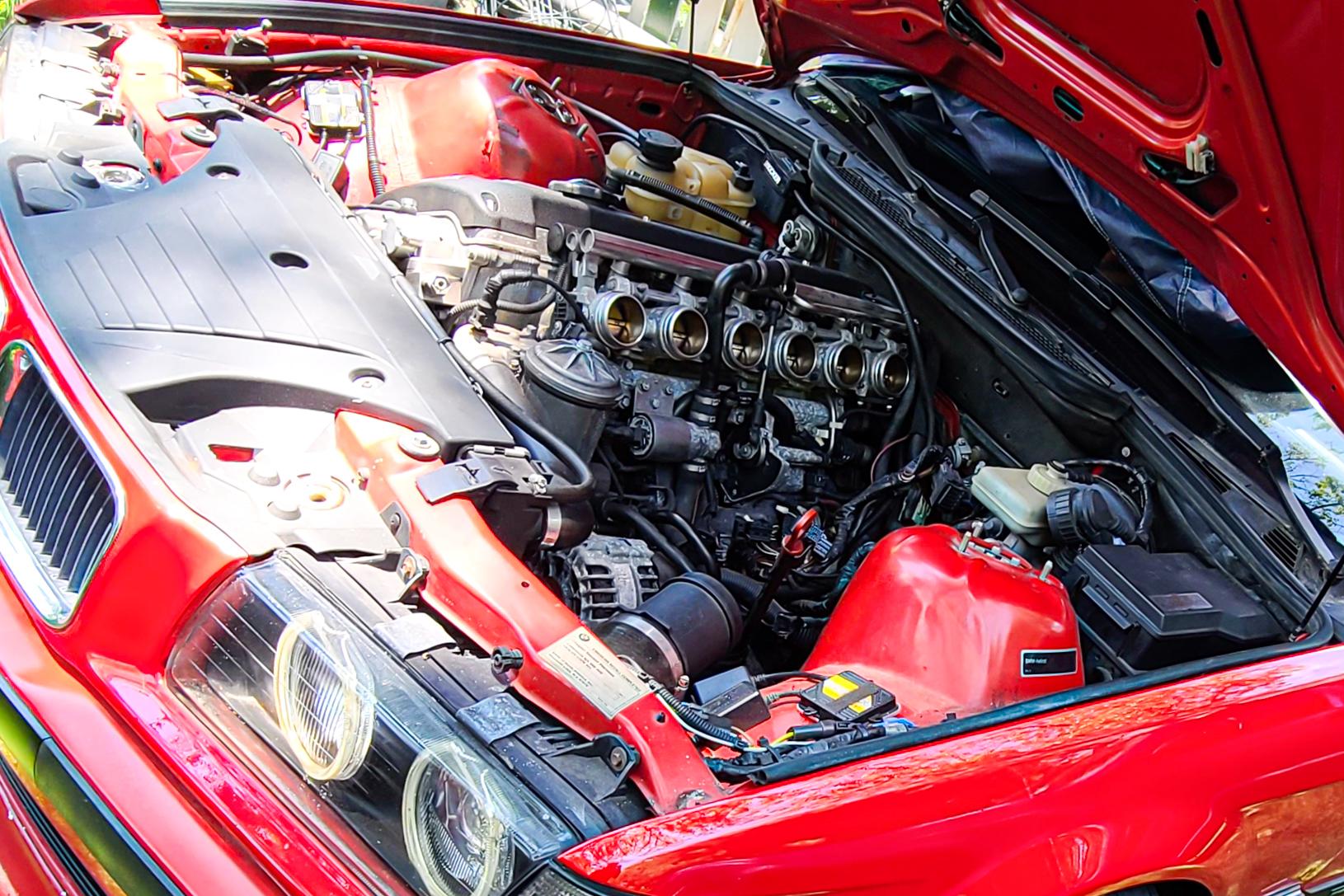BMW 318ti: Efficiency Specs and Characteristics Explained
BMW 318ti: Efficiency Specs and Characteristics Explained
Blog Article
Secret Attributes to Search For When Buying an Engine for Automotive Applications
When taking into consideration the acquisition of an engine for vehicle applications, several essential functions warrant careful examination to make sure ideal performance and performance. From power and efficiency abilities to fuel effectiveness, adherence, and toughness to exhausts requirements, each aspect plays a crucial role in identifying the engine's suitability for particular automobile needs.
Power and Efficiency
When choosing an auto engine, buyers focus on power and efficiency to guarantee optimum driving experience and efficiency. The power output of an engine, frequently determined in horse power (HP) or kilowatts (kW), determines the velocity, leading speed, and total capabilities of a car. Higher power scores generally lead to quicker acceleration and better efficiency, particularly during surpassing or bring heavy loads. Efficiency, on the other hand, includes a broader spectrum of features, consisting of fuel efficiency, discharges, dependability, and general driving characteristics. A well-performing engine not only provides power efficiently yet likewise operates smoothly across various speed varieties and driving conditions.
Furthermore, elements such as engine crossbreed, turbocharging, and displacement modern technologies play considerable duties in boosting both power and performance levels. Ultimately, selecting an engine that uses a powerful combination of power and performance ensures a efficient and gratifying driving experience.
Gas Effectiveness
Enhancing fuel efficiency is a vital consideration for consumers when reviewing vehicle engine options. Modern engines with functions like straight gas shot, turbocharging, and variable valve timing can substantially boost gas performance by boosting combustion processes and lowering energy loss.

Resilience and Integrity
Attaining resilient performance and reliable procedure is vital for consumers evaluating the durability and dependability of automobile engines. When considering an engine for auto applications, resilience describes the engine's ability to stand up to wear, anxiety, and harsh operating problems over a prolonged duration. Reliability, on the various other hand, indicates that the engine can constantly do its desired feature without unforeseen breakdowns or failures.
Customers need to look for engines built with high-grade materials and specific engineering to make sure longevity. Elements such as crankshafts, pistons, and bearings need to be resilient to take care of the engine's power output without premature wear. Additionally, engines equipped with innovative air conditioning systems, efficient lubrication, and durable filtration mechanisms often tend to display greater degrees of integrity.
Regular maintenance and adherence to supplier referrals are also crucial my latest blog post consider protecting an engine's toughness and integrity. By following upkeep timetables, making use of advised liquids, and addressing any problems quickly, customers can make the most of the life expectancy and performance of their vehicle engines. Eventually, focusing on toughness and dependability in engine option can result in a more gratifying possession experience with fewer unexpected disruptions.
Discharges Conformity
Making certain conformity with emissions laws is a critical element of assessing automotive engines for environmentally mindful customers. With enhancing problems about air quality and environmental impact, stringent exhausts standards have actually been implemented around the world to lower damaging toxins released right into the atmosphere. When acquiring an engine for auto applications, it is essential to consider its discharges compliance to minimize the carbon footprint and follow lawful requirements.
Modern engines are furnished with innovative discharge control technologies such as catalytic converters, exhaust gas recirculation (EGR) systems, and careful catalytic decrease (SCR) to lower dangerous exhaust gases like nitrogen oxides (NOx), carbon monoxide (CO), and hydrocarbons (HC) These systems play a crucial role in making certain that the engine fulfills the specified emissions criteria and runs within permissible limitations.

Cost-effectiveness
When thinking about auto engine purchases, examining cost-effectiveness is critical for customers looking for both performance and value. It incorporates the general expenditures connected to maintenance, gas consumption, and prospective fixings over the engine's life expectancy.
One key aspect of cost-effectiveness is fuel efficiency. Engines that are created to make best use of fuel economic situation can result in considerable savings with time, especially for people who drive regularly or over cross countries. In addition, taking into consideration the availability and affordability of spare components and maintenance can add to the total cost-effectiveness of an engine. Guaranteeing that repair and maintenance are easily accessible and affordable can avoid unanticipated monetary burdens down the line.

Verdict
In final thought, when purchasing an engine for automotive applications, it is crucial to take into consideration crucial features such as power and efficiency, fuel toughness, reliability and effectiveness, emissions compliance, and cost-effectiveness. These variables are necessary in guaranteeing that the engine fulfills the needs of the car and runs successfully in numerous driving conditions - bmw 318ti. Making an informed choice based on these criteria will eventually result in a reliable and successful auto engine acquisition
From power and performance capabilities to sustain efficiency, sturdiness, and adherence to discharges standards, each facet plays a crucial function in identifying the engine's viability for particular vehicle requirements. Engines made to run on alternative gas such as electric power, crossbreed systems, site here or biofuels can offer better fuel read more economic situation and lower discharges contrasted to conventional fuel or diesel engines. Customers need to thoroughly take into consideration the gas performance ratings and modern technologies incorporated right into vehicle engines to make enlightened investing in choices that align with their priorities for price financial savings and sustainability.
When thinking about an engine for automobile applications, sturdiness refers to the engine's ability to stand up to wear, anxiety, and severe operating problems over an extensive duration.In verdict, when purchasing an engine for automotive applications, it is critical to consider essential attributes such as power and performance, gas efficiency, longevity and reliability, emissions conformity, and cost-effectiveness.
Report this page